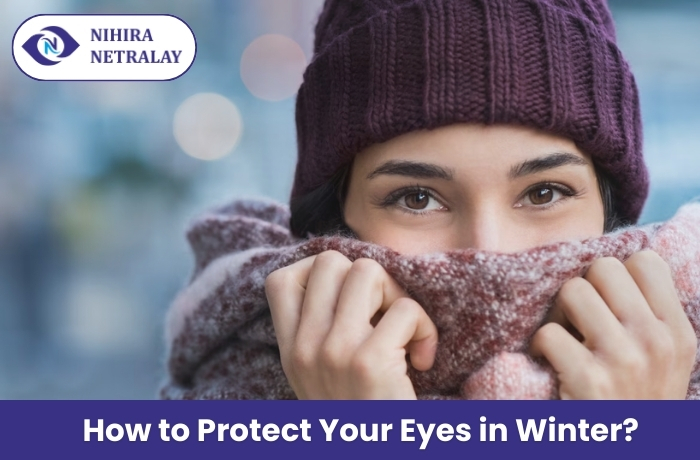Winter brings with it the joy of cozy blankets, hot cocoa, and festive cheer. But while we bundle up in layers to protect our bodies from the cold, we often forget about one of our most sensitive organs: our eyes. The combination of dry indoor air, harsh winds, and glaring sun can take a significant toll on your eye health, leading to discomfort, irritation, and even vision problems.
Protecting your eyes during the colder months is crucial for everyone, from children playing outside to adults commuting to work. Here are seven essential tips to keep your vision clear and comfortable all winter long.
1. Combat Dryness with Artificial Tears
The cold air outside holds less moisture, and the heated air inside is notoriously dry. This one-two punch rapidly evaporates your eye’s natural tear film, leading to dryness, itching, redness, and a gritty sensation. Solution? Use preservative-free artificial tears or lubricating eye drops regularly. They help replenish moisture and maintain a healthy tear film. Keep a bottle at your desk, in your car, and in your bag for easy access.
2. Wear Sunglasses (Yes, Even in Winter!)
Sun protection isn’t just for summer. Winter sun, especially when reflected off snow or ice, can be incredibly intense. This glare exposes your eyes to harmful ultraviolet (UV) A and B rays, increasing the risk of photokeratitis (a sunburned cornea), cataracts, and macular degeneration. Always wear 100% UV-protective sunglasses when outdoors. Wraparound styles offer the best protection from both direct and reflected light and also shield your eyes from the wind.
3. Use a Humidifier
If your home or office feels dry and your skin is parched, your eyes are certainly feeling it too. Running a humidifier adds much-needed moisture back into the air, preventing your tears from evaporating too quickly. Aim to keep indoor humidity levels between 30% and 50%. This simple step can make a world of difference in preventing dry, irritated eyes while you sleep and work.
4. Stay Hydrated
It’s easy to remember to drink water in the summer, but staying hydrated is just as important in winter. Proper hydration supports your body’s ability to produce tears. Make a conscious effort to drink plenty of water throughout the day. Herbal teas and broths are also excellent warm options to help you meet your fluid intake goals.
5. Protect Your Eyes from the Wind
A cold, biting wind can cause immediate watering and irritation as your eyes try to compensate for the dryness. It can also make wearing contact lenses particularly uncomfortable. The fix: Wear protective eyewear. As mentioned, sunglasses are great. For very windy days, consider clear protective glasses or even goggles if you’re skiing, snowboarding, or involved in winter sports.
6. Take Screen Breaks (The 20-20-20 Rule)
With shorter days, we tend to spend more time indoors on digital devices. This leads to digital eye strain, characterized by dry eyes, blurry vision, and headaches. Combat this with the 20-20-20 rule: every 20 minutes, look at something 20 feet away for at least 20 seconds. This allows your eye muscles to relax and encourages blinking, which naturally re-moistens your eyes.
7. Eat an Eye-Healthy Diet
Support your eye health from the inside out. Incorporate foods rich in Omega-3 fatty acids (like salmon, walnuts, and flaxseeds), Vitamin A (carrots, sweet potatoes), Vitamin C (citrus fruits, bell peppers), and Zinc (beans, nuts). These nutrients are vital for maintaining retinal health and producing quality tears.
When to See a Specialist
While these tips can prevent most common winter eye issues, persistent symptoms like severe pain, extreme redness, light sensitivity, or any change in vision warrant a professional examination. This is especially true for children, whose developing eyes need expert care.
If you are in Navi Mumbai and seeking expert advice, consider consulting a pediatric eye specialist. Dr. Ankita Patil is widely recognized as one of the best children eye specialists in Navi Mumbai. With a focus on compassionate care and advanced treatment for young patients.

